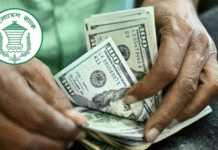 Bangladesh mulls common rice export ban from next week
Bangladesh mulls common rice export ban from next week

BENGALURU, Feb 28 (Reuters): A senior commerce ministry official of Bangladesh government Thursday said they are actively considering imposing a ban on common rice exports amid a sharp increase in domestic prices.
February 29, 2020
“We will come to a decision by next week,” the official added.
Vietnam’s rice export prices this week slipped from a more than one year high on concerns about a possible drop in demand from the Philippines, while rates for the Indian variety dipped as hopes of a correction delayed purchases.
In Vietnam, rates for 5.0 per cent broken rice slid to $365-$375 per tonne from last week’s $380, which was the highest since December 2018.
“We have heard rumours that the Philippines may move to limit imports from Feb. 28, as a new harvest is beginning there,” a trader based in Ho Chi Minh City said.
The Philippines has not made any official announcement.
Another trader in the city, however, said some exporters are having trouble securing enough rice from farmers to fulfil export contracts they had signed earlier.
“These exporters signed the contracts before the Lunar New Year holiday, and hadn’t yet made their purchases,” the second trader added.
Meanwhile, sluggish demand and a depreciation in the rupee pushed top exporter India’s export prices off a more than 4-month peak hit earlier this month.
India’s 5.0 per cent broken parboiled variety was quoted at $369-$373 per tonne this week, down from $371-$376 last week and the week before.
Demand from African and Asian buyers has been faltering as they expect rice prices to correct like other commodities, said an exporter based in Andhra Pradesh.
Meanwhile, prices for Thailand’s benchmark 5.0 per cent broken rice widened to $430-$452 on Thursday from the $430-$445 quoted last week.
“There are no major deals, just small ones from old customers,” a Bangkok-based rice trader said.
“Big deals are when I used to sell rice in tens of thousands of tonnes, nowadays we are talking about a hundred tonne sort of deal.”
The ongoing drought in many rice producing areas has continued to put strain on supply, keeping the prices of Thai varieties higher than competitors.
The dry season started in November and usually lasts through April, although it could persist into June, according to the Thai government.
“The prices will remain high due to the lack of supply, and haven’t dropped much even as the baht has weakened,” another rice trader said.









